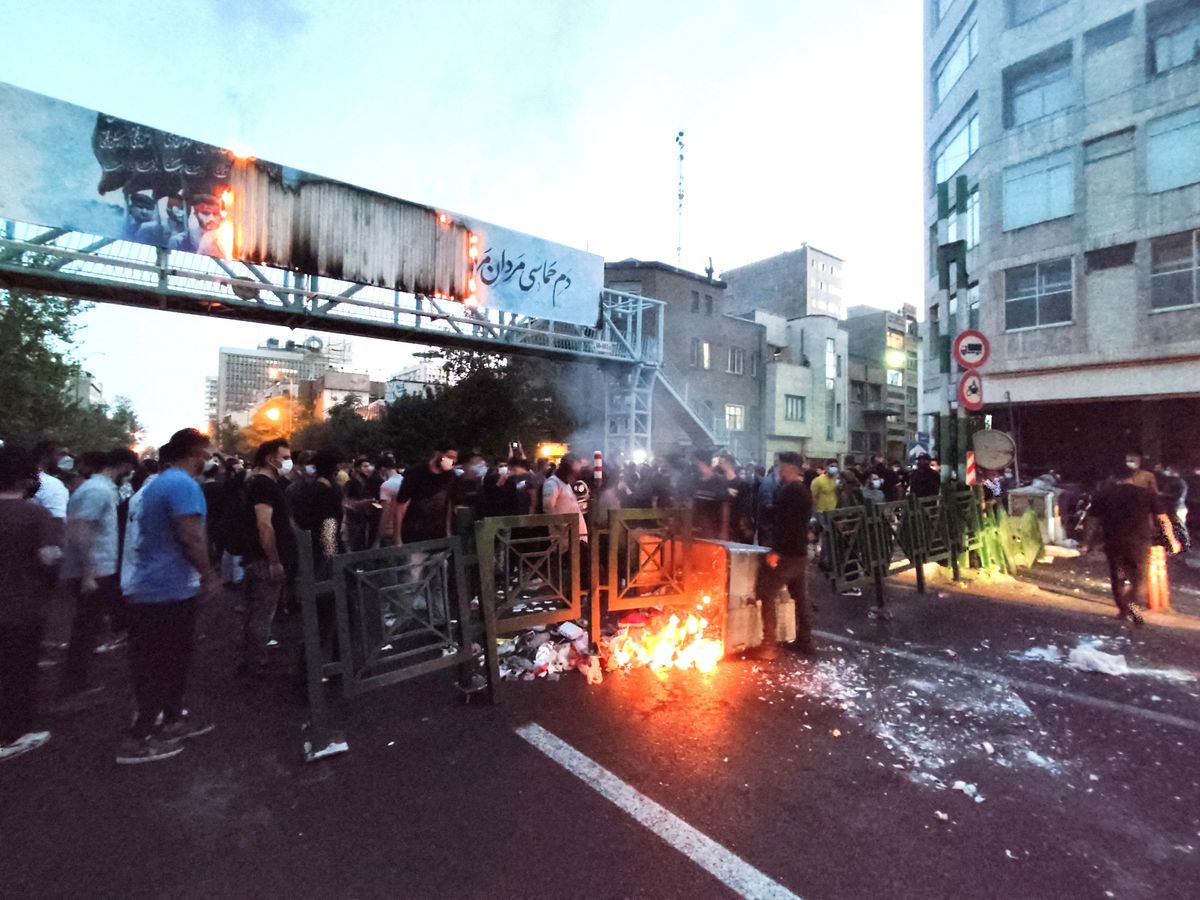Iran strikes as reports say the morality police haven’t been shut down
As the confusion continues, Iranians are holding a three-day strike.

A few minutes every morning is all you need.
Stay up to date on the world's Headlines and Human Stories. It's fun, it's factual, it's fluff-free.
Iranians have noticed that the morality police blamed for Mahsa Amini's death have pretty much vanished since mid-September. Last weekend, Iran's Attorney General Mohammad Jafar Montazeri was asked about this, and he replied, "The morality police had nothing to do with the judiciary, and the same institution that established it has now shut it down." Right away, this comment was interpreted to mean that the morality police had actually been shut down.
But now, activists and officials in Iran are criticizing these reports, saying the unit hasn't been disbanded. Officials say Montazeri was speaking out of turn, and Iranian activists are worried the reports will give the wrong impression that Iran is making some concessions to protestors.
As the confusion continues, Iranians are holding a three-day strike. This strike means to pressure Iranian authorities into fully shutting down the morality police. Some lawmakers claim that they're listening to the protestors' demands, but they haven't really mentioned the morality police situation. The strikes started Monday. This isn't just an economic strike, either. Teachers, students and factory workers are also striking or sitting in. Shopkeepers and taxi drivers staged walkouts in 40 cities throughout Iran on Monday.
Key comments:
"No official in the Islamic Republic of Iran has confirmed the closure of the Irshad Patrol," an article in the Iranian state-run outlet Al Alam said on Sunday.
"Nationwide strikes, particularly in key sectors, could be used to put time on the side of protestors while creating chaos and financial issues for the state," Behnam Ben Taleblu, an Iran expert and senior fellow at the Foundation for Defense of Democracies, told CNBC.
"The situation is really quite simple. The Islamic Republic – the regime – after 43 years has finally lost contact with their people and that is what this is really about. This is different from anything that's gone before in the previous 43 years. They are having a dialogue with themselves but the main population finds the offers of reform largely an irrelevance," a senior European diplomat explained.




Comments ()